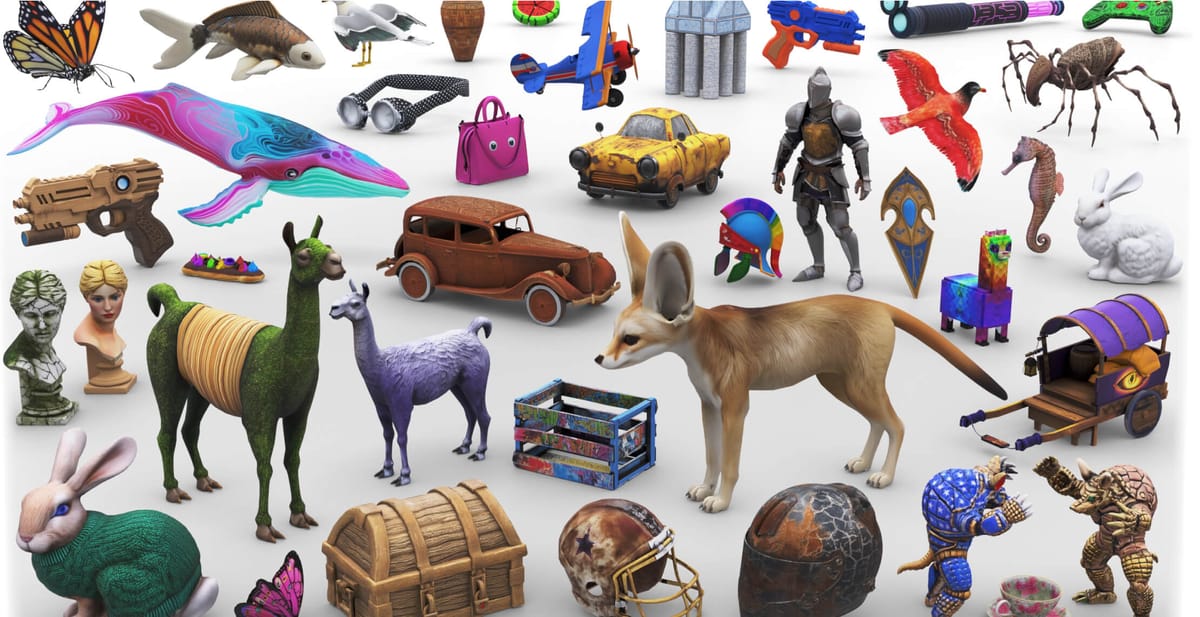
Meta has launched 3D Gen, a new AI system that generates high-quality 3D assets from text descriptions in less than 60 seconds. This technology marks a significant advance in AI-powered 3D content creation, potentially transforming how developers and artists create virtual environments for games, VR, and other applications.
The system builds on two key research papers: Meta 3D AssetGen and Meta 3D TextureGen. These studies detail novel approaches to text-to-3D generation and texture refinement, addressing long-standing challenges in the field.
Meta 3D Gen uses a two-stage process to create 3D assets. The first stage, powered by AssetGen, generates a 3D mesh with physically-based rendering (PBR) materials from a text prompt. This stage overcomes the difficult task of translating 2D concepts into 3D structures.
A Meta researcher explained, "AssetGen generates both shaded and albedo views of the object. This dual approach allows our system to more accurately infer 3D structure and material properties, resulting in higher-quality assets."
The second stage, driven by TextureGen, refines the textures created in the first stage. This step is crucial for achieving the level of detail needed for professional-grade 3D assets. TextureGen uses a combination of view-space and UV-space generation techniques to create detailed textures that match the original text prompt while maintaining consistency across the 3D model.
Meta 3D Gen stands out not just for its speed, but for its ability to produce high-quality results across a wide range of prompts. The system can handle simple objects, complex characters, and intricate scenes with remarkable fidelity to user instructions.
In tests against other industry-leading solutions, Meta 3D Gen consistently outperformed its competitors. Professional 3D artists and designers showed a clear preference for Meta 3D Gen's outputs, particularly praising its prompt fidelity and visual quality for complex text descriptions.
The potential applications for this technology are vast. Game developers could use 3D Gen to rapidly prototype environments and characters, significantly speeding up the development process. Architectural visualization firms could generate detailed 3D models of buildings and interiors from text descriptions, streamlining the design process. In the field of virtual and augmented reality, 3D Gen could enable rapid creation of immersive environments and objects, potentially accelerating the development of metaverse applications.

